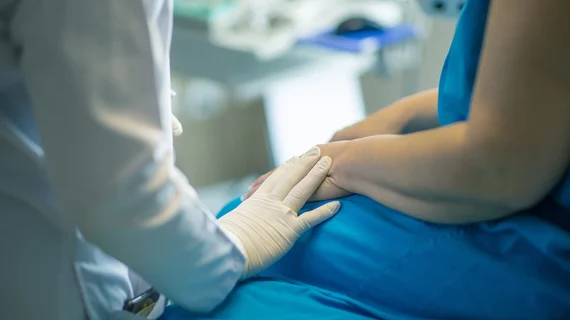Intermittent fluoro method reduces radiation dose during image-guided biopsy
During musculoskeletal needle biopsies, intermittent CT fluoroscopy (iCTF) spares patients of excess radiation doses while maintaining procedural quality.
Intermittent CT fluoroscopy combines the cross-sectional capabilities of CT with the real-time image tracking of fluoroscopy. It can be especially beneficial for biopsy procedures. In a recent side-by-side analysis of iCTF and helical CT (HCT) during image-guided needle biopsy, intermittent fluoroscopy was shown to significantly reduce the dose-length product (DLP) and volume CT dose index patients were subjected to during the procedure [1].
This finding prompted researchers involved in the study to suggest that intermittent fluoroscopy could have a greater role in the future of biopsy procedures.
“Image-guided percutaneous needle biopsies are essential in the workup of musculoskeletal lesions,” corresponding author Alexis Cahalane, MD, of Massachusetts General Hospital and co-authors explained. “While helical CT is well established, intermittent CT fluoroscopy is an increasingly used alternative.”
The method was tested for a 12-month period between June 2017 and June 2018 at a tertiary academic center.
In a cohort of 216 patients divided nearly even between those who underwent helical CT-guided versus intermittent CT fluoroscopy-guided biopsy, dose-length product (DLP) and volume CT dose index were found to be significantly higher for the HCT group. Encouragingly, although iCTF resulted in a substantial dose reduction, experts noted that the method did not come at the expense of diagnostic yield or increased procedure times. Additionally, no adverse events were recorded during the study.
The experts indicated that their findings support the use of iCTF during musculoskeletal needle biopsy, stating that the method should be “strongly considered” by radiologists performing them.
The study abstract is available in Skeletal Radiology.

